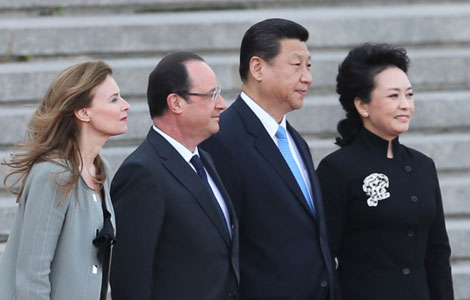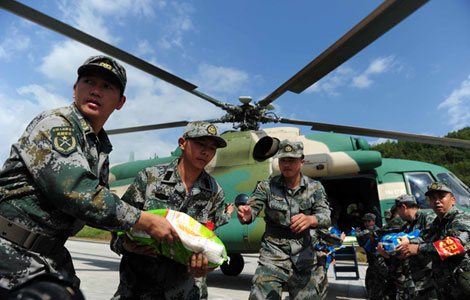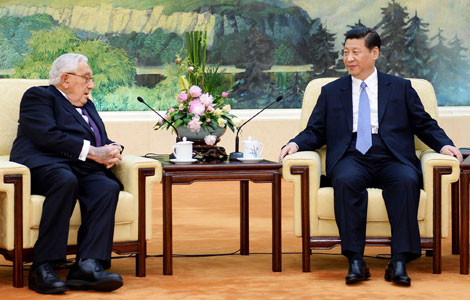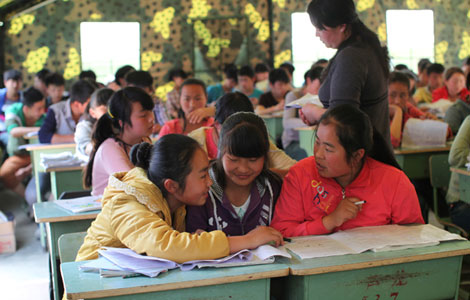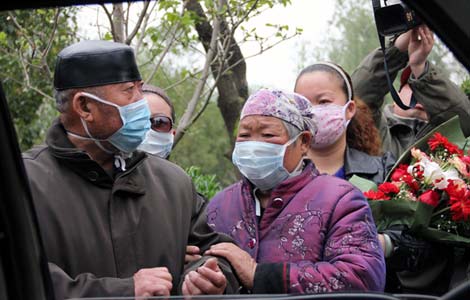Copyright watchdog urges industry dialogue
Updated: 2013-04-26 01:13
By CAO YIN (China Daily)
|
||||||||
|
 |
|
Pirated publications and CDs are destroyed in Taiyuan, capital of Shanxi province, on Thursday, to mark World Intellectual Property Day on Friday. Zhan Yan / Xinhua |
Music providers and website operators should meet to discuss the possibility of charging for music downloads on the Internet, a prominent copyright official said on Thursday.
In March, Gao Xiaosong, a famous Chinese composer, said that Web users will have to start paying to download music from July 1, adding many record companies, larger enterprises and several industry-related government agencies supported the move.
At the end of last year, a few of the biggest Chinese music websites revealed that the government supported them too in providing high-quality music for download.
But whether a fee should be charged and who should pay remain controversial issues with the public.
At a news conference on Thursday on the future development of intellectual property rights in China, Yan Xiaohong, deputy director of the National Copyright Administration of China, said it was inevitable that at some point people would have to start paying to download music.
But the question of how to charge should be studied or decided between music suppliers and the Web operators.
"Charging to download music is a growing trend, so it would be understandable to see online operators getting fees from their users," he said.
But if website operators still want to provide online music for users to download for free and make up their operating costs with other revenues, such as advertising, it will be OK as well, he added.
"However, the premise should be to get permission from composers and pay them, no matter what decision the online operators make."
Liu Yinliang, an associate law professor of intellectual property rights at Peking University, agreed with Yan.
He said the most important issue lies in how to prevent composers' copyrights from being violated.
Online music providers often use works without the authors' permission and broadcast them for free, he added, which is the biggest problem in dealing with online copyright infringement.
"Music providers, in fact, can be said to be a 'bridge' between composers and online operators, and most infringements happen when there is a problem with this 'connection'," Liu said.
The solution is for music providers and Web operators to balance their interests, meaning network users would still enjoy some downloaded online music for free, he added.
However, Feng Xiaoqing, a law professor who specializes in intellectual property rights at China University of Political Science and Law, said it will prove hard to charge customers to download online music in China.
"What might be charged could depend on what they download. Many Web users just download music from the Internet for fun. To them, being charged to download would be almost impossible."
Liu Xiaohang, a 25-year-old Beijing-based music fan, agreed with Feng, saying he would never pay anything to download music.
"I'm accustomed to enjoying free music online, so if a Web operator asks me to pay, I just won't choose that website to listen to music," he said.
Two of China's largest online music downloading websites, Baidu and Tencent, did not respond to a request for comment.
In 2012, Chinese copyright administrations handled 282 online piracy cases and closed 129 websites, while police also handled 44,000 cases involving fake commodities, according to figures provided by the State Intellectual Property Office.
Most Viewed
Editor's Picks
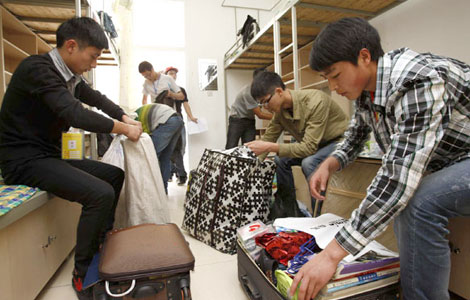
|

|

|

|

|

|
Today's Top News
Phone bookings for taxis in Beijing
Chinese consumers push US exports higher
Seoul delivers ultimatum to DPRK
Boston bombing suspects intended to attack NYC
No let up in home price rises
Bird-watchers undaunted by H7N9 virus
Onset of flood season adds to quake zone risks
Vice-president Li meets US diplomat
US Weekly

|

|
